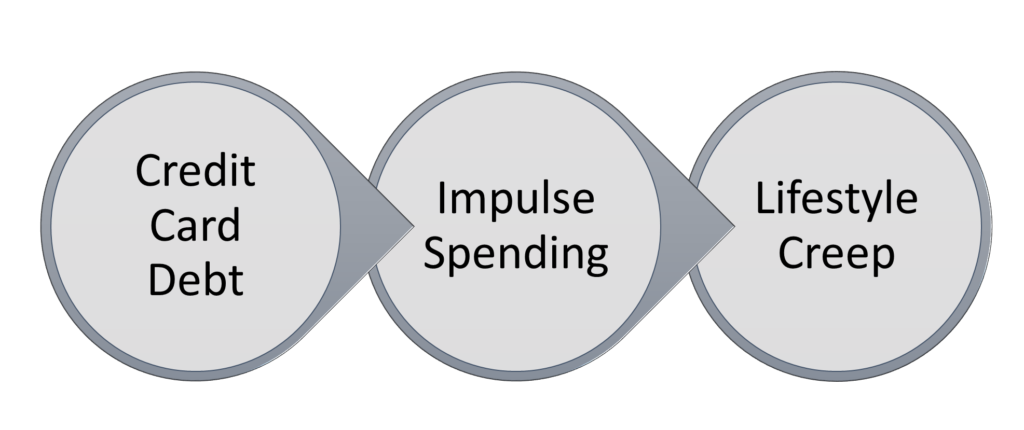Master Your Money: Learn to Build Good Habits and Break Bad Ones

Breaking old habits is never easy- harder when it’s a bad habit. Specifically, money habits can be very damaging; it’s necessary to change these habits as soon as possible.
Like many things about life, learning to manage money is one of those things that no one can really tell you how to do. You need to figure it out by yourself, through a process of trial and error, and while it is likely that you have a few good habits, it is just as possible that you’ve stacked up a lot of bad ones too.
Luckily, it is not expected from anyone to improve overnight. Learning is a long and slow process, even with something as important as managing your finances.
What Are Some Common Bad Money Habits?
The first and most important step to breaking your bad habits is to first recognize them. Most people don’t even realize that they are being irresponsible with their money because the effect isn’t immediate. So, let’s look at some of the most commonly made mistakes.


1. Credit Card Debt
The numerous exciting and attractive cashback offers and rewards on credit card schemes can be very tempting. Young people, especially those entering their 20s and learning to be newly independent, often get caught up in swiping their credit cards without thinking about the debt they would rack up.
These credit card debts are difficult to pay off. Not to mention, spending over 35% of your available credit will result in a negative impact on your credit score. If one fails to make the minimum payment on time, that also adds to a low credit score
2. Impulse Spending
Have you ever wondered why the checkout aisle at the store also contains many small easy-to-grab items? They’re a tactic- and a successful one- to tempt customers into spending more money before they exit the store. At the moment of purchase, these small items may not seem too consequential. But over time, they rack up enough credit debt to make you regret your spending habits.
Impulse spending also includes emotional spending- research shows that retail therapy is an easy and common mistake to make when people are feeling down; making purchases can offer some semblance of control. But it is crucial to remember that this happiness is only short-lived. Many impulse purchases are things that you don’t need or even want.
3. Lifestyle Creep
As you earn more, your lifestyle quality gets better. You start to spend more too. Buying a coffee on the way to work, a sandwich at lunch, or dinner on the way home; buying products of unnecessarily expensive brands when the less costly version works just as well; opting for extensive product warranty schemes instead of paying to get a product fixed- all these are habits that we take up to save time and get through the day quicker, minimizing our own effort.
As life-saving as these small harmless purchases might seem, they are, in fact, the opposite, and if not curbed, they can collectively cause a large dent in your savings
What Are Some Good Habits To Take Up?
As important as it is to break your bad habits, it is just as important to start following good ones. In order to start doing so, it is important for one to know what these good habits are.
Here are some examples of good saving habits to get you started on maintaining healthy finances
1. Plan and Follow A Budget.
While this might seem like a simple rule, it can actually be difficult to stick to for many people. The 50/30/20 plan is the most common budget design and is also considered the most useful. Another important thing to remember is that you should always put a portion of your paycheck toward your savings before spending it, instead of the other way around.
2. Keep a Careful Account of Your Daily Spending.
Write it in a diary or make a spreadsheet. Bookkeeping can be a tedious task, but it gives you a better overview of your spending habits; it helps you figure out where you can cut down on expenses or make changes.
3. Distinguish your Needs versus your Wants.
While there is no harm in indulging yourself once in a while, you have to be careful not to let it turn into a habit. In the long run, it’s much better to analyze your essential needs and minimize impulse or emotional purchases.
4. Save and Invest.
Possibly one of the most important tips for good money habits, it is always a good idea to design an investment plan that is following your life goals.
At first, bad money habits might not seem to have a huge impact on your life. However, as time goes on, they start affecting your life in extremely negative ways.
Over time, it becomes harder to recover from the losses incurred. Instead, start building these good habits as soon as possible, to ensure a financially healthy and secure life later on



